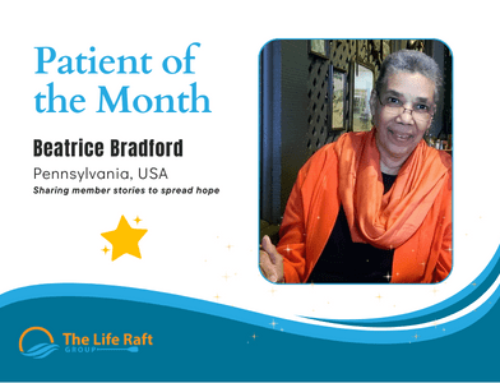 I am a 62-year-old urologic surgeon who has lived in Washington, D.C. since 1977. I have been happily married to my wife, Cathy, for 20 years. As chairman of a department of urology at a local hospital, I have administrative, teaching, research and patient responsibilities. My medical practice is primarily limited to patients with genitourinary cancers.
I am a 62-year-old urologic surgeon who has lived in Washington, D.C. since 1977. I have been happily married to my wife, Cathy, for 20 years. As chairman of a department of urology at a local hospital, I have administrative, teaching, research and patient responsibilities. My medical practice is primarily limited to patients with genitourinary cancers.
I frequently consult with patients, they on one side of the desk and me on the other, wearing a long white coat. We have lengthy discussions regarding the nature of their illness, treatment options and how those options apply to their specific problem. I attempt to remain responsive to their individual concerns, be compassionate and informative, always keeping in mind the patient’s quality of life.
I have always believed that I will have a lengthy life, as my parents were in their late 80s when they passed away from natural causes. I was quite shocked when I learned I had a rare illness. I could become the topic of medical journals and perhaps grand rounds, the educational forums in hospitals.
I will attempt to do the best I can to relate my experience, as I became the patient on the other side of the desk.
In July 2001, my wife and I planned to join a lifelong friend and his wife on a Baltic Sea cruise to celebrate his 60th birthday. We joined them in Copenhagen. The cruise was extraordinary and rather gourmet.
I was determined to work out with a personal fitness trainer every day. Five days into the trip, I was exercising while lying on my abdomen when I felt an unusual discomfort in my left upper quadrant. I rolled over and to my surprise felt a mass. I was stunned.
I immediately visited the ship’s doctor. He did not confirm the presence of the mass — or maybe he was just reluctant to tell me. We decided that we would watch things for the time being. I considered being evaluated in Stockholm, our next port of call; however, it was a national holiday. I felt well but was extremely alarmed.
The doctor suggested that I was coming down with gastroenteritis, an inflammation that occurs on cruises. For the next three nights my abdomen had all kinds of bizarre symptoms that I couldn’t put together. I became bloated. One night in particular, I told my wife that the pain was so severe that, if I were home, I would go to an emergency room. I endured.
My symptoms went away after a few days. As the others were dining on caviar and champagne, I had put myself on a bland diet of chicken soup. I could not partake in various activities aboard the ship. For most of the cruise I was confined in my “deluxe stateroom.” I did participate in a number of onshore excursions and was able to visit St. Petersburg, an incredible place.
I examined myself after the symptoms dissipated. The mass had increased appreciably in size. It was obvious to me that what was happening was, in fact, dynamic. I thought that perhaps I might have bled into whatever I had noticed in the days prior.
I returned to the ship’s doctor and we made arrangements for my medical evaluation at the next port of call, in former East Germany.
Early that morning a cab drove Cathy and me to Rostok University Hospital. A physician who spoke in broken English evaluated me. He examined me, confirmed the presence of the mass, and obtained blood work. I had bled into the mass. Subsequently, I had an abdominal and pelvic CAT scan. I saw my own films as they were developing — and was horrified.
A very large mass was originating in the back of my stomach, pushing every adjacent organ aside. I could not believe what was happening within me. I’d had a physical exam once a year. I thought I was aware of my own body.
It became apparent that we would have to fly home immediately. The concierge made arrangements for our flight from Berlin. We managed to pack in seconds. Tearfully, we said goodbye to our close friends, fearing I might never see them again. I thought I was facing my own demise.
The next 36 hours were incredibly difficult. We took a cab from the last port of call to Berlin. As I pondered my fate, supported ever so much by my wife, we zoomed down the autobahn at more than 100 mph. Although I had Cathy’s loving support, I felt incredibly frustrated. I called several people at home to alert them of my early arrival. We stayed overnight in Berlin and flew the next day directly to Washington, D.C.
During that time, I began mourning for myself. I did not think I would be using the plot at the Garden of Remembrance so soon. I envisioned my funeral service. I would cry spontaneously. Some thoughts I would relate to my wife and others were too morbid to say aloud. I realized I had a responsibility to remain rational throughout this ordeal. However, words do not convey the anxiety, frustration and fear that engulfed me.
We arrived in Washington without any problems. We immediately went to consult with several gastrointestinal physicians, as well as a well-respected radiologist. The mass could not be diagnosed. This heightened my fear. I was advised to rest over the weekend and return Monday for a series of evaluations, examinations and a consultation with the surgeon specializing in gastrointestinal malignancies.
Over that weekend I decided to call a physician at another hospital. I thought he might be able to give me guidance. My call was warmly received. He invited my wife and I for an informal Sunday. This physician is well known in the medical community and is perhaps one of the brightest surgeons in the United States.
He reviewed the films and, for the first time, we were given a glimmer of hope. He related that although the mass was large and complex, it was merely pushing against everything rather than invading it. He felt that there was an excellent chance of a cure. I held on to this hope and was extremely grateful for the consultation.
Monday morning I went through a number of diagnostic tests. The findings on the CAT scan where confirmed and there was no evidence that it had spread elsewhere.
The next stop was a consultation with a surgical oncologist, known to be a superb technician. Even though he had gone out of his way to meet with us, I found this consultation unsatisfying. It was brief and impersonal. He also said that there might be out-of-pocket expenses for potential treatment that was somewhat controversial. Although I initially agreed, I remained unsettled. This surgeon had a plan from which he was not going to deviate, and more importantly, my quality of my life seemed to be a non-issue, which I found disconcerting. Although capable, it was clear to me that he would probably not be the surgeon for me.
That day, I called the physician we’d met on Sunday. He again was responsive, gracious and accepting. He suggested a meeting with him and the principal cancer surgeon of his department. We met for an hour and a half that evening. During the discussion, two things were salient in my mind. The first was a statement made by both, that the most important consideration in what was to be a lengthy surgery was that intraoperative judgment and decisions were critical. A surgeon had to go into this procedure with no time constraints whatsoever. The second was the fact that quality-of-life issues were addressed.
Though I might be inconvenienced initially, I would eventually have a pretty normal quality of life. I would lose a significant part of my stomach, my plumbing would be rearranged and I would have to eat multiple small meals. Over the ensuing months my stomach would enlarge so I could eat steak with the boys. We felt more satisfied that I was not just another person on the conveyer belt.
However, I didn’t know the surgeon very well. I wasted little time checking him out. The opinions resounded that he was a superb surgeon and a caring person.
With that, I cancelled surgery with the first surgeon, then called the other facility to see if they would take me as a patient. I was reassured that I should have no problem.
I underwent a 7 1/2-hour procedure July 12, 2001. Two thirds of my stomach was removed along with a mass of about seven pounds, the size of a healthy baby. Throughout my hospitalization, I remained in disbelief. My recovery was smooth. I gained weight and over time was able to eat normally. My quality of life was quite tolerable. I resumed my busy schedule.
I was monitored closely receiving PET and CAT scans every three to four months. I did very well until April of 2002. That was when the floor fell from beneath me again; my surgeon reported that the scans had shown an isolated recurrence. I was crushed. I accepted the fact that I was to start on 800 mg. of Gleevec daily.
Other than fatigue and an occasional upset stomach, I tolerated the medication quite well. Very quickly the PET scan became negative and the CAT scan demonstrated considerable shrinkage. I elected a “second-look” operation in October 2002 and had my abdomen explored. The shrunken tumor was removed and demonstrated a minute focus of GIST surrounded by scar tissue. The remainder of my abdomen was clean. After recovering, I resumed Gleevec at 400 mg.
I again gained weight, ate normally, and resumed normal activities with close monitoring. I was not mentally prepared for the ensuing roller coaster ride I was to experience.
All studies were negative until May of 2004. Again, scans showed an isolated recurrent mass. Again, I sunk to new lows, called my wife and related that I would undergo surgery the following week.
It was incredibly difficult to call my patients and tell them that I would be transferring their care to other physicians. My support system at home and at work was incredible as schedules were shuffled and people were informed of my upcoming surgery. I called Norman Scherzer and related my story. He quietly replied, “You have lost your innocence.”
On May 26 I was re-explored through the same incision. Fortunately, the recurrence was isolated, removed and had the same histological appearance as the original and second-look tumors. But the first weeks were very difficult as I again went through a personal mourning process.
As of late, a good pathology report, the ongoing support of many, and knowledgeable physicians have made me increasingly hopeful that the future is bright and filled with better times.
Perhaps it is the human spirit in all of us but it is needed to continue on our journey through this lifetime. It is just a few months from my surgery and I have been able to resume my life. I, like so many others, continue to have hope that there are no more surprises in the future and, if there are, they can be treated “simply” with a pill.




